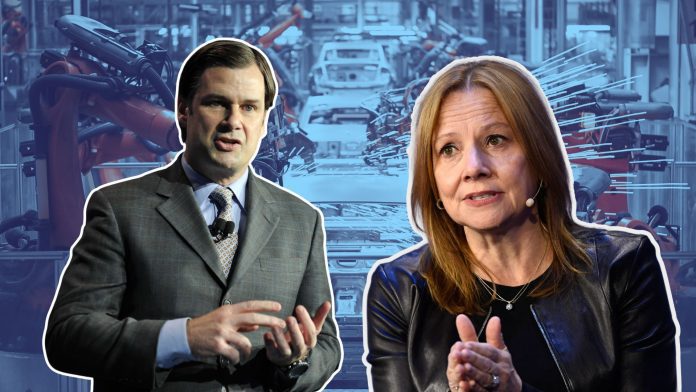At a recent Bernstein conference, the CEOs of Ford and General Motors (GM) presented divergent views on the role of hybrid vehicles in their long-term strategies. This discourse, led by Ford’s CEO, Jim Farley, who champions hybrids as a pivotal part of the industry’s future, and GM’s CEO, Mary Barra, who perceives them as a short-term solution, provides a compelling insight into the future of the automotive industry.
Farley emphasized the profitability and importance of hybrids, urging the industry to stop viewing them as merely transitional. He highlighted that many of Ford’s hybrids in the U.S. are now more profitable than their non-hybrid counterparts. Farley believes extended-range hybrids are essential for the industry’s future, even though plug-in hybrids with small batteries for shorter distances may become less relevant.
In contrast, Barra maintains that hybrids are not the ultimate goal due to their non-zero emissions. GM plans to introduce plug-in hybrids by 2027 to meet regulatory requirements but remains focused on fully electric vehicles. Barra emphasized the strategic deployment of capital to achieve zero emissions.
The differing strategies reflect broader trends in the automotive industry. Hybrid vehicles, bridging gas-powered cars and EVs, have seen increased demand, leading some automakers to reconsider their electric ambitions. Ford aims to quadruple hybrid sales in the coming years and has delayed some EV investments in Canada and the U.S.
Farley also commented on the profitability of EVs, arguing against subsidies and stressing the need for automakers to produce battery-powered models profitably. Ford’s restructuring in 2022, which separated its electric and software division from gas-engine operations, aims to enhance efficiency. Despite forecasting a significant loss in its EV business for 2023 and 2024, Farley sees software and subscription services as future profit drivers and views autonomous driving technology as an important growth opportunity.
Advancements from Chinese automakers further complicate the competitive landscape. Farley acknowledged that Chinese competitors lead in digital consumer experiences, setting high standards for cost and quality. Barra echoed the importance of staying competitive against top Chinese carmakers, stressing the need for strong brands and products to maintain market position.
Both executives recognize the intense competition in the global market. Farley predicts that not all carmakers will survive, especially all EV brands without gas-engine offerings to support profits.



